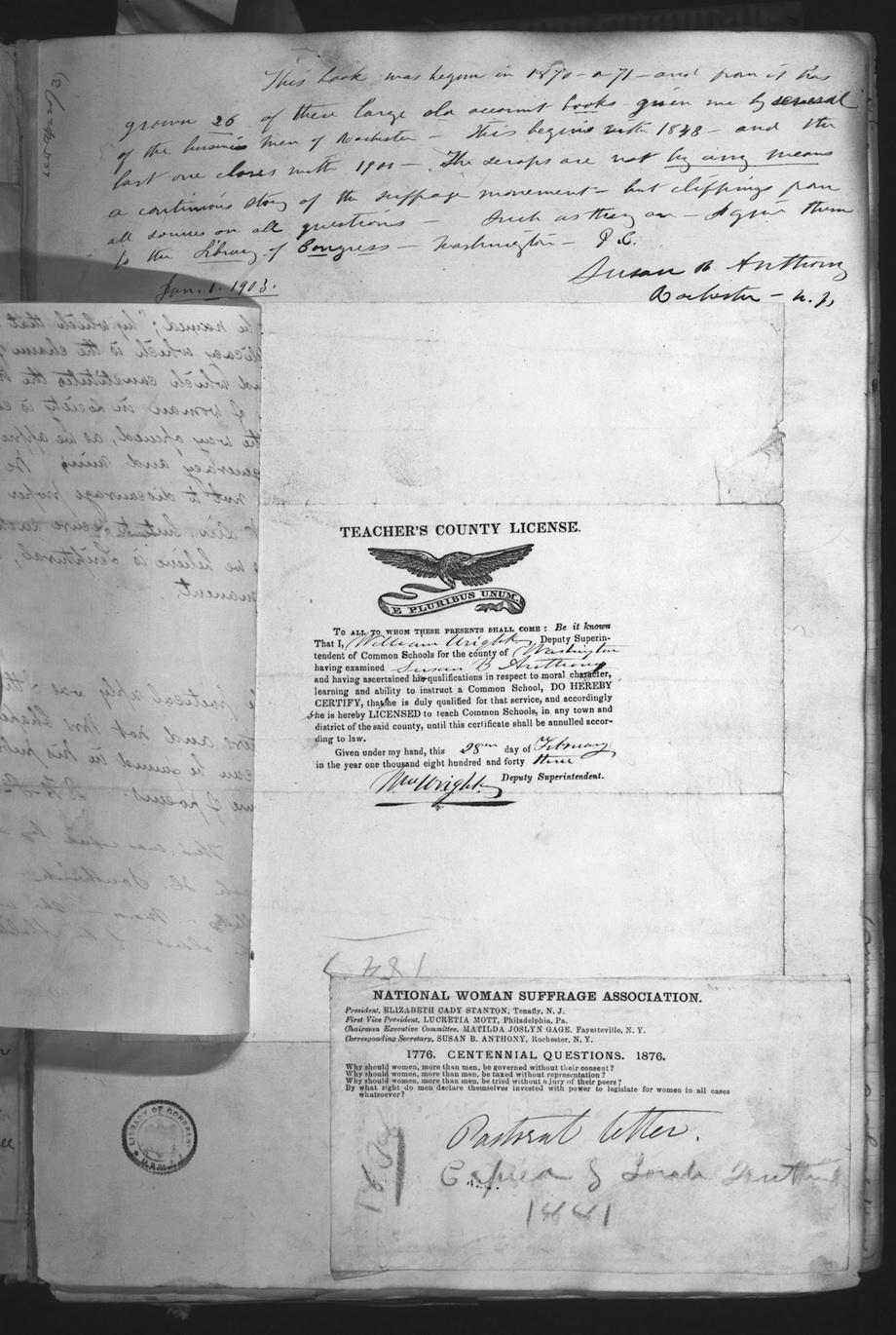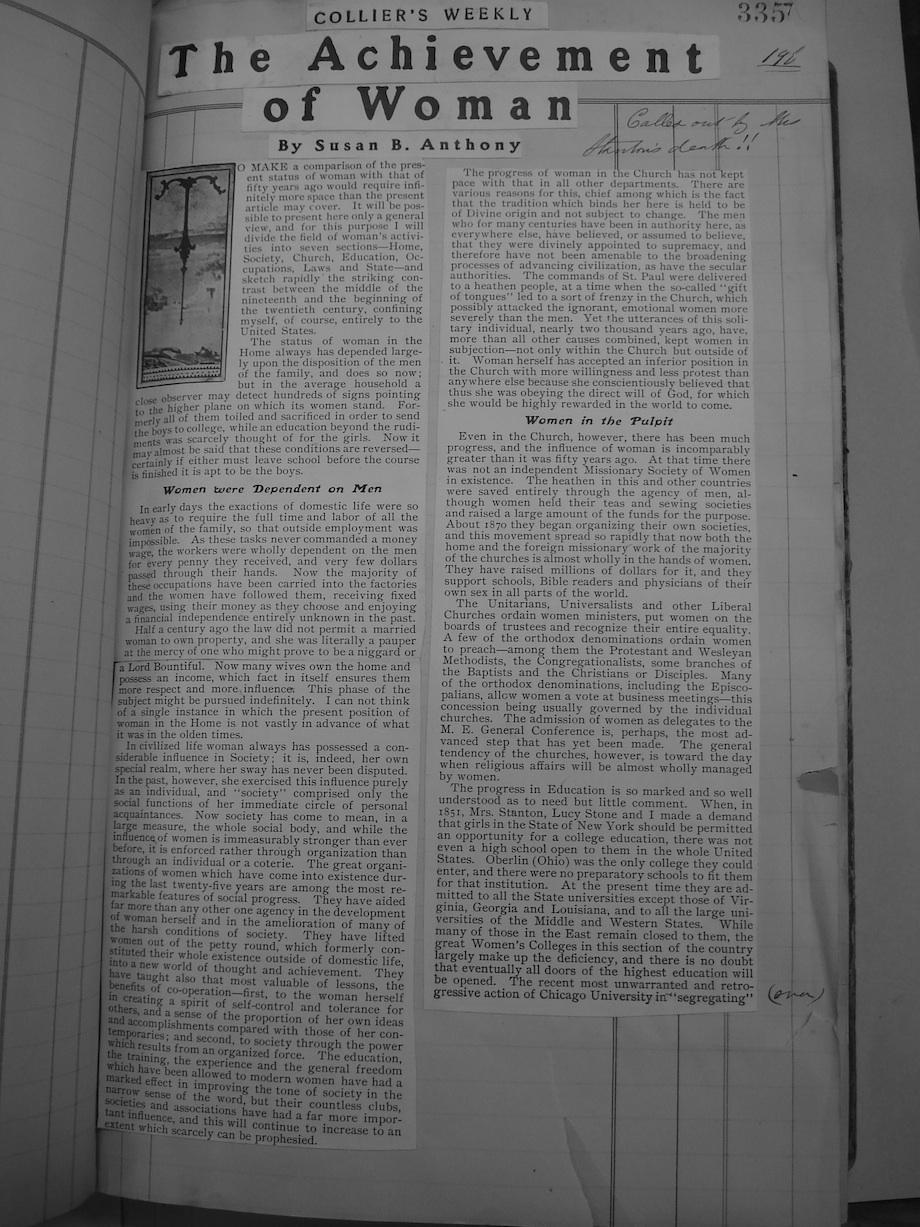The Vault is Slate’s history blog. Like us on Facebook, follow us on Twitter @slatevault, and find us on Tumblr. Find out more about what this space is all about here.
The activists who struggled for seven decades to get women the right to vote followed the press closely. Scrapbooks were one of their tools.
Nineteenth-century scrapbooks were more like today’s digital bookmarks and favorites lists than simple memorabilia collections—nearly everyone used them to save articles, stories, and poems that they might not see again if they left them buried in piles of unindexed newspapers. Abraham Lincoln’s scrapbooks tracked his debates with Stephen Douglas, Mark Twain’s gathered trial records for possible stories, and women’s rights activists collected news items on attacks on women as fuel for speeches.
Susan B. Anthony’s 33-volume scrapbook, now at the Library of Congress, begins with a refutation of masculine objections to women speaking in public. She opens the first volume with an article transcribed from an 1837 issue of the abolitionist paper The Liberator. The anonymous author, speaking for a Protestant church organization, proclaimed that public speaking would make a woman’s character “unnatural.” Anthony’s riposte was her teaching license, pasted in below: Wasn’t teaching another form of public speaking?
Anthony outlived her comrade Elizabeth Cady Stanton (another scrapbook maker) by four years. Anthony collected obituaries and articles about Stanton after her 1902 death. Stanton’s death had prompted the popular magazine Collier’s Weekly to ask Anthony for two articles summing up their work. Perhaps it was because Collier’s attention to women’s rights issues had previously been slight that Anthony noted next to the pasted-in clipping that the article was “called out by Mrs. Stanton’s death!!”
Like many scrapbookers, Anthony didn’t buy expensive blank books, but reused old ones—in this case an old ledger. The lines from it peep out at the bottom of the page.
Ellen Gruber Garvey is the author of Writing with Scissors: American Scrapbooks From the Civil War to the Harlem Renaissance.

Library of Congress. Image courtesy Ellen Gruber Garvey.

Library of Congress. Image courtesy Ellen Gruber Garvey.